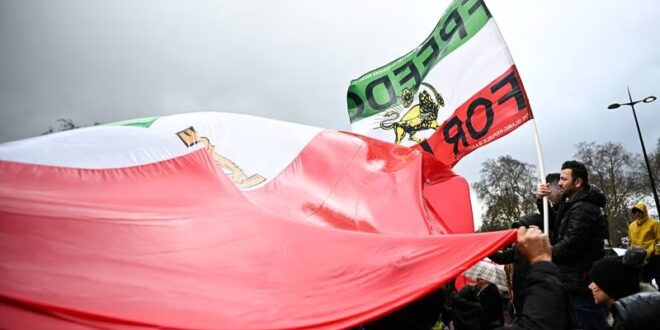Britain’s Foreign Office has blocked a plan that would have led to Iran’s Islamic Revolutionary Guard Corps (IRGC) proscribed as a terrorist organisation, according to a report.
The government department cited the need to keep communication channels with Tehran open as relations between the two countries continue on a downward spiral.
Foreign Secretary James Cleverly was told by MPs in the House of Commons this week there had been a “major groundswell” in requests for the Sunak government to designate the IRGC as a terrorist organisation. Mr Cleverly said the Revolutionary Guard’s “malign impact” was felt across the region and the world, but stopped short of saying a proscription was in the pipeline.
Campaigners, analysts and politicians from across the political spectrum have urged the Conservative government to place the IRGC in the same category as Al Qaeda and ISIS. MI5, the UK’s security service, has accused Tehran of plotting to assassinate or abduct British residents on several occasions.
Journalists in London have been given round-the-clock police protection after being sent death threats.
Iran’s execution of British-Iranian citizen Ali Reza Akbari on spying charges last month further soured diplomatic relations.
Under the Terrorism Act 2000, the home secretary has the authority to place a group on the UK’s terrorist list if they believe it is concerned in terrorism, and it is proportionate to do so.
Suella Braverman, the home secretary, and Tom Tugendhat, the security minister, are understood to be in favour of a proscription for the IRGC.
But the Foreign Office is said to have halted the plan, citing the need to retain a communication channel with Iran.
The Times quoted a Whitehall source as saying officials in the Foreign Office “have real concerns about proscription because they want to maintain access”.
“The Home Office, and the government more broadly, supports the move,” the insider added. “The IRGC should have been proscribed by now but the whole process is on ice.”
Officials in the Foreign Office, which is led by Mr Cleverly, reportedly questioned how the IRGC would be defined as a terrorist organisation given the fact it is a government agency, unlike most other groups on the list.
The Foreign Office declined to comment.
The Foreign Secretary has repeatedly declined to say whether the government has plans to proscribe the IRGC, but said ministers would not limit themselves to current sanctions options against Iran.
David Lammy, Labour’s shadow foreign secretary, earlier this week questioned Mr Cleverly about such a move.
“The Islamic Revolutionary Guard Corps is responsible for 10 kidnap and death plots on British soil, the execution of Ali Reza Akbari, the unjust imprisonment of British nationals, supports violent militia across the Middle East, and a brutal crackdown on courageous Iranian protesters,” Mr Lammy said in parliament.
“Labour has been clear, and I wonder if we might get clarity from the Foreign Secretary, we would proscribe the IRGC either using existing terrorism legislation or by creating a new process of proscription for hostile state actors. When is the Foreign Secretary going to act?”
Mr Cleverly replied that the government had “already sanctioned over 300 individuals and entities because of the crackdown on protesters”, as well as individuals and organisations involved in supplying drones to Russia.
The UK has also imposed sanctions on the prosecutor general responsible for passing the death penalty on Mr Akbari, he said, “and we will continue to take actions which will curtail the ability of the IRGC to do these things”.
Mr Cleverly said that ministers “always keep our future options under review”.
 Eurasia Press & News
Eurasia Press & News



